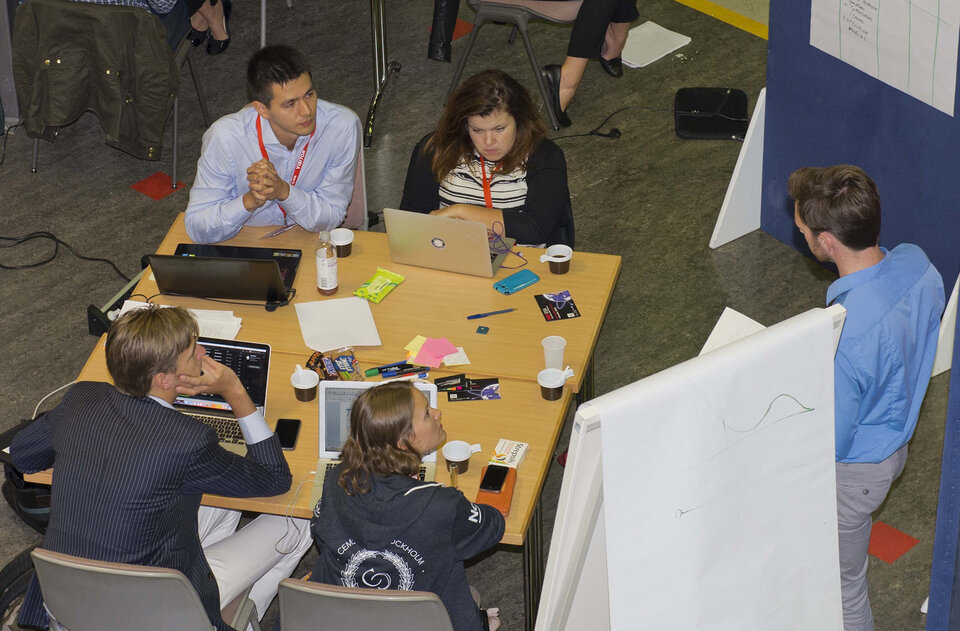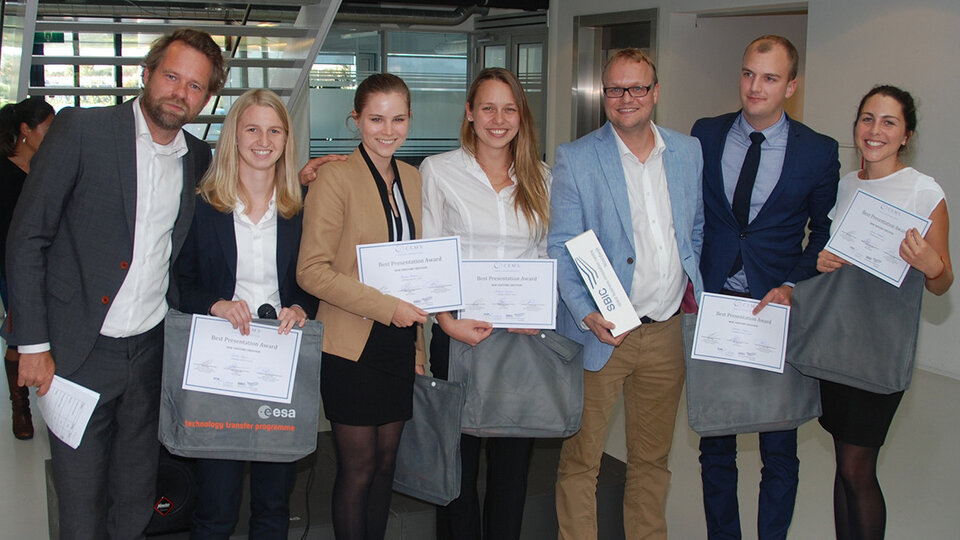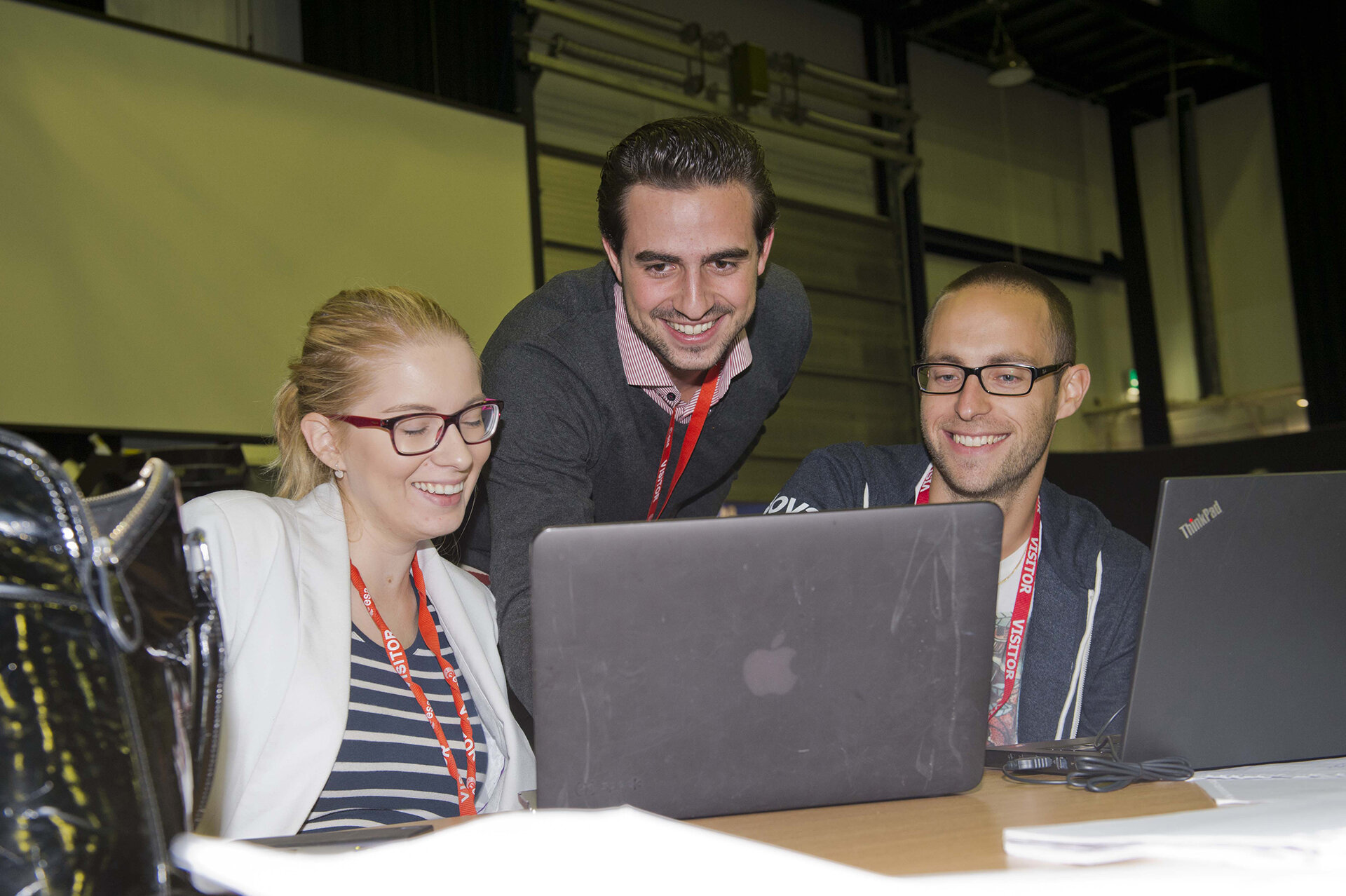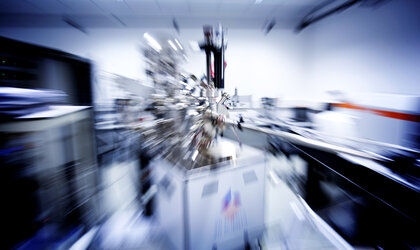Being an entrepreneur for a week
Last week, 66 business students got the opportunity to solve a real business problem.
Hosted at ESA’s ESTEC technical heart in the Netherlands and its nearby Business Incubation Centre, students from all over Europe took part of the annual intensive week-long seminar organised by ESA and Erasmus University’s Rotterdam School of Management (RSM).
Divided into two groups, 29 took part in the “Entrepreneurial Challenge: Turning Technology into Business”, where teams competed to develop the best business proposition for a terrestrial start-up company based on a space technology.
The other 37 took part in the “New Venture Creation: Consulting the Directors of a Start-up Company”. Teams were paired with start-up companies at the business incubator, where they provided strategic advice to resolve real problems the start-up entrepreneurs face to get their companies going.

After an introduction seminar, the students received their tasks and had until midnight on Thursday – the famous 80 hours – to formulate their proposals. Friday was reserved for team presentations and the award ceremony.
“It was exciting, using our studies on a real business case,” said Valentino Piasini from Switzerland. “We worked almost round the clock to come up with the best proposal.
“After this experience I am very tempted to become an start-up entrepreneur after I finish my studies, instead of applying for a more conventional job.”
Turning technology into business

The challenge was to exploit a special piece of software that ESA uses in satellite fault-finding analysis, and develop a company targeting non-space sectors.
One of the seven teams wanted to use the software to create a cyber security firm. Another proposed a company to monitor off-shore windturbines, which are costly to maintain. Other ideas included checking drones and a vehicle direction system to minimise traffic jams.
The winner targeted diabetes patients. Viktor Palo from Finland, Valentina Sofijanic from Serbia, Arne Grob from Germany and Tsvetina Kirova from Bulgaria proposed continuously monitoring patients to detect anomalies that could indicate the need for medical intervention.

“People with diabetes need constant attention and key health parameters must be checked to be sure that their treatment is always optimal, but today’s methods are struggling to provide the necessary data handling and analysis,” said Viktor.
“The ESA software could be the basis for a solution because it is designed to handle large quantities of data and spot anomalies and patterns. Wearable technologies could be used to constantly collect the data.”
“Our proposal could improve the treatment by reducing secondary illnesses due to complications from late treatment of symptoms. It would provide a significant better quality of life to diabetics,” added Valentina.
“In addition, it could cut the costs associated with treatment of people affected by diabetes.”
Consulting the directors of a start-up company

The seven groups were paired with a company with a business challenge to meet, guided by consultants from McKinsey & Company on how to provide professional business consultancy.
One group was assigned to ESA incubator alumnus BlackShore, company behind the Cerberus platform using crowdsourcing to develop maps based on satellite data and local information. With new data from Sentinel-2, BlackShore want to monitor forest degradation with crowdsourcing, eventually to provide additional information for reducing carbon dioxide emissions. The students were asked to evaluate their business model and to investigate the potential customer base.
Another worked with eFarmer, a company now at the business incubator, providing fieldwork management tools for the 12 million small and medium farms in the EU. Using feedback from around 50000 farmers who have tried the company’s tools, the students were asked to investigate and analyse the distribution channels and advise on how best to penetrate the market.

The winning team presented a plan for how the Space Business Innovation Centre (SBIC) in nearby Noordwijk could promote the regional competition of the European Satellite Navigation Competition (ESNC) in the coming in the next two years, a request received from the Dutch government. SBIC is the start-up running ESTEC’s local business incubator.
ESNC is an ideas competition to promote businesses using space technology in non-space environments. The students proposed defining the target market clearly and then addressing this market.
Eleventh ESA–RSM seminar
The yearly seminar organised by ESA and RSM is a mandatory element of the international CEMS Master in International Management degree, a highly ranked international MSc curriculum offered by a number of world-leading business schools, including RSM, in collaboration with multinational companies and non-profit organisations.

“It is amazing what the students managed to complete in just five days,” noted Niels Eldering of ESA’s Technology Transfer Programme Office. “They come up with innovative business prospects for new European companies from our space technologies.
“It is a great learning process for future European business managers to see and feel the opportunities and potential of terrestrial spin-offs from our space programmes.”
ESA is a CEMS Social Partner. With the help of Social Partners, CEMS prepares the next generation of business leaders by developing global citizens as business leaders with professional responsibility and accountability in relation to society and the environment.
CEMS is a global alliance of 28 world-class academic business institutions and over 70 corporate business partners dedicated to educating and preparing future generations of global business leaders for today’s multilingual, multicultural and interconnected business world through its recognised Master’s in International Management.







